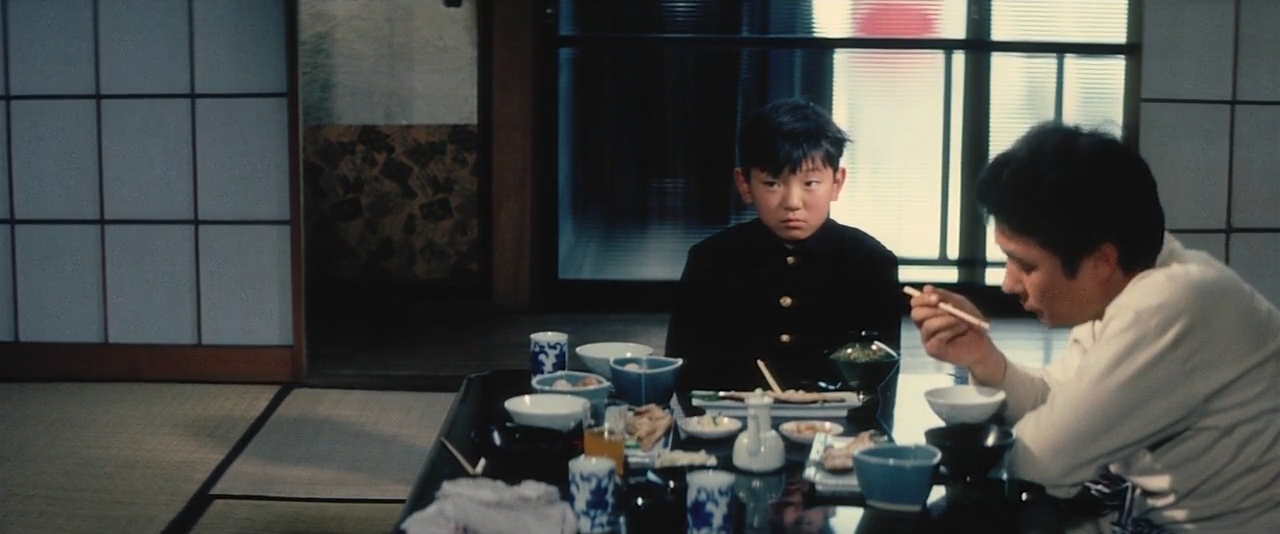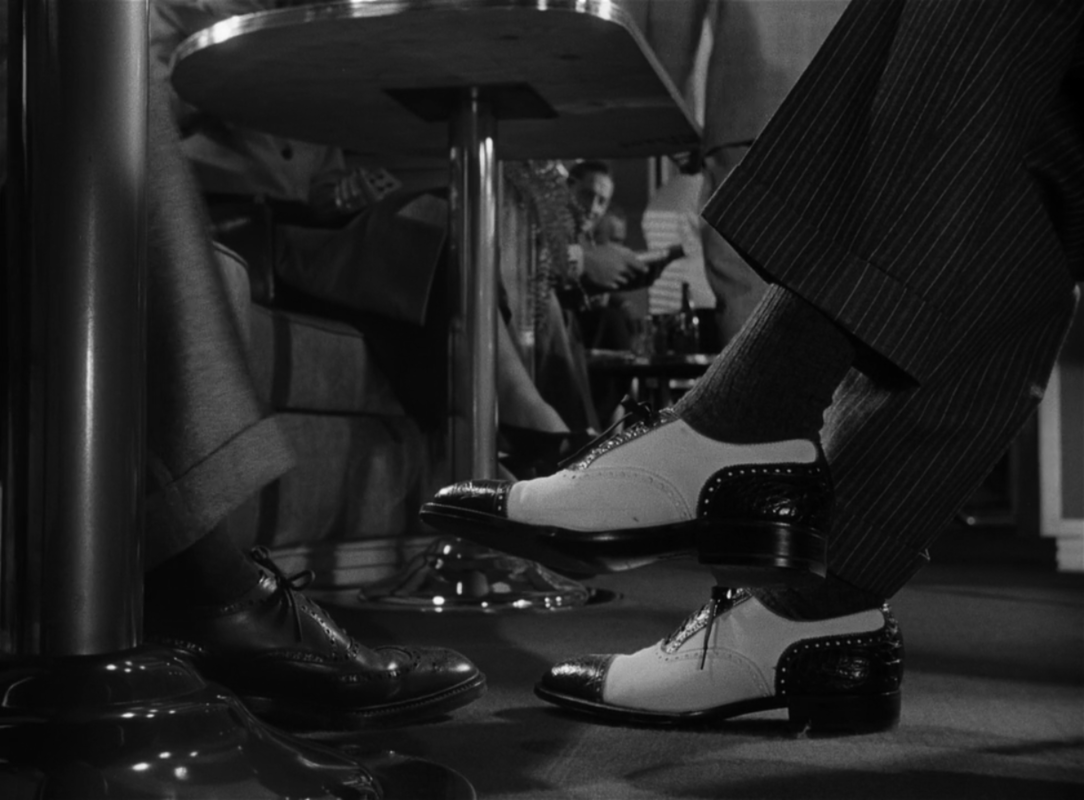“My son – Sebastian – and I constructed our days. Each day we would carve each day like a piece of sculpture, leaving behind us a trail of days like a gallery of sculpture until suddenly, last summer.”Suddenly, Last Summer (Joseph L. Mankiewicz, 1959)
Jun
7

Catherine (Elizabeth Taylor) and a man in white, seen from the back, eating alfresco near a beach. DP: Jack Hildyard.
– Mrs Vi Venable
Kontrakt [The Contract] (Krzysztof Zanussi, 1980)
Jun
4
Coca-Cola

Two middle-aged men in discussion with a woman, semi off-screen, holding a drink. There's food covered with a napkin and a wineglass in front of the men. Behind the men, the maid – a tense woman cradling many small Coca-Cola bottles – looks on. DP: Slawomir Idziak.
鴎よ、きらめく海を見たか めぐり逢い [Kamome-yo, kirameku umi o mitaka/meguri ai / Oh Seagull, Have You Seen the Sparkling Ocean? An Encounter] (Kenji Yoshida, 1975)
May
30
Pokkī

A young woman in a red-and-white striped sweater (Yōko Takahashi) leafs through fashion magazines strewn out before her on a grass-green carpeted floor while chewing a Pokkī. On a small stove close to her a fire truck red coffee pot. DP: Kōshirō Ōtsu.
Doktor Glas [Doctor Glas] (Mai Zetterling, 1968)
May
27
akvavit

A man (Per Oscarsson) raises a glass and peers though its ribs and liquids. DP: Rune Ericson.
“One grilled cheese, two slices of toast, two coffees. One pepper steak no chili and a plate of spaghetti and meatballs. Two glasses of milk. One plate of spare ribs. A chicken in a basket with three cups of honey. One lean smoked meat sandwich with pickles and mustard. One two-cream coffee and two club sandwiches. Two clubs.”Françoise Durocher, Waitress (André Brassard, 1972)
May
21
lunch break

Waitress Françoise Durocher, this may be Luce Guilbeault, on her lunch break. DP: Thomas Vámos.
– Françoise Durocher
“She's still crazy about him. He's still crazy.”Altered States (Ken Russell, 1980)
May
18
tea

An almost monochrome man and woman in Edwardian costumes sit at a round table under a parasol. The couple looks out over a field with bright orange poppies. The flowers are filmed through a fisheye lens and appear to be on a grassy green planet.. DP: Jordan Cronenweth.
“We seem to hear the winds of reform whistling down the chimney. Whereas the low hussy frolics off to buy her supper. Where do you keep your canned tamales, partner?”Rain (Lewis Milestone, 1932)
May
13
canned tamales

Sadie Thompson (Joan Crawford) looking for canned tamales in the pantry of the island's only convenience store. DP: Oliver T. Marsh.
– Sadie Thompson
Slnko v sieti [The Sun in a Net] (Štefan Uher, 1963)
May
9
lunch

An old man, enclosed in a simple, wooden window frame, eating his lunch. DP: Stanislav Szomolányi.
少年 [Shōnen / Boy] (Nagisa Ōshima, 1969)
May
6

The boy in his school uniform (Bin Amatsu) at a table in a traditional Japanese room with his meal untouched. A man eats next to the kid who glances at someone or something offscreen. The table is set for three. DPs: Seizō Sengen & Yasuhiro Yoshioka.
